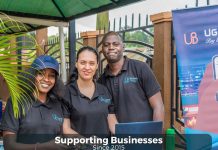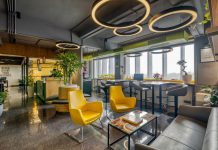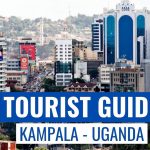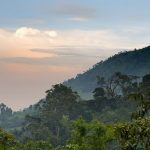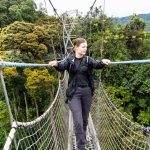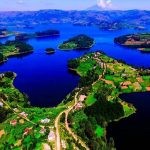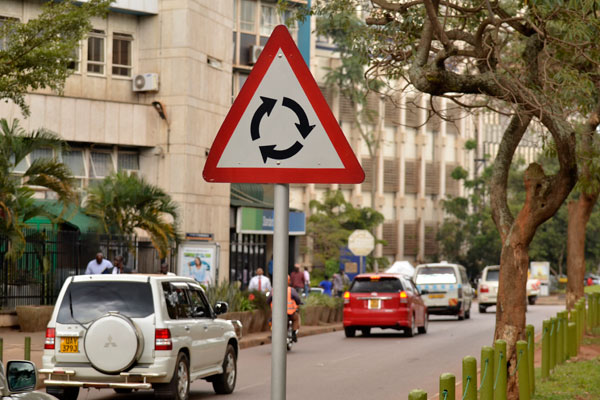Two wooden booths, two phones, and two headsets. That’s all it takes to bring Ugandans and Dutchmen a bit closer to one other, according to three design students from the Hogeschool Voor de Kunsten (HKU) in the Netherlands. They organized an unusual, long-distance Q& between Kampala and Amsterdam and baptized it TruthAgency.
The feeling that led to the inception of TruthAgency is Shame. During their design internship in Kampala, the expectations of Lynn Smit (22), Tessa De Boer (22), and Lizzy Steller (25) clashed with the Ugandan reality. They quickly realized how ignorance can lead to blunt stereotyping.
“Our decision to come to Uganda was criticized by our family and friends,” Tessa admits. ¨Everyone was worried about Boko Haram and Al-Shabaab. And upon our arrival, we realized that we also had an incomplete, wrong picture of the country and the people.”
Shameful indeed, but it turned out that Ugandans know close to nothing about the Netherlands either. High time for some myth-busting, the design trio decided. Their graduation project took the shape of an agency that offers participants “a journey to the other side of the story.”
The idea is beautiful in its simplicity: let Ugandans and Dutchmen counter misconceptions about one another by asking each other questions and by offering answers. Before asking a question, both parties get to see a one-minute movie on a phone in a booth, showing impressions of the city on “the other side”.
The booth in Ntinda, a neighborhood in Kampala. (Photo by Realiteitbureau)
An entirely new initiative? “Similar concepts exist, like the app Ask Me Anything,” Tessa explains. “But the innovation with Truth Agency is that Ugandans who don’t have access to the internet can also ask or answer a question in our booth.”
Embarrassing misconceptions
Over a period of five days, Tessa and Lizzy set up their black booth in bustling spaces in Kampala: Kyambogo University, Ntinda, Acacia Mall, old taxi park. People are curious and open.
“I would like to know if anybody in the Netherlands can do the business I am doing,” Juliet asks, looking into the iPhone camera while balancing a basket of mangoes on her head.
Juliet asks her question in the booth in Ntinda. (photo by Realiteitbureau)
Many Ugandans ask how to get to the Netherlands, or stress their competencies and willingness to work with Dutch businesses. “These questions deserve clear answers,” stresses Lizzy. “It would be nice to find a Dutch politician or policymaker to explain this in our booth in Amsterdam.”
Turns out that this is easier said than done. Lynn, who set up a white booth in various places in Amsterdam, has a harder time finding people who would like to ask a question to a Ugandan. People usually say they are in a hurry, or they think she is selling something. “A man just passed by and said he was very interested in culture and arts, but not today,” she tells us over the phone. Moreover, the questions coming from Amsterdam have a more random feel to them: “Do you have cheese in Uganda?”, “Is there higher education in Uganda?”
In less than a week time, the designers gather 100 questions from Ugandans and 56 questions from Dutchmen. The questions coming from both booths reveal an embarrassing amount of misconceptions, which explains the general enthusiasm of the booth visitors.
Lynn with an interested passerby in the booth in Amsterdam. (photo by Realiteitbureau )
“Stop f****** around”
Two night before they left the country, Tessa and Lizzy hit Que Pasa, a crowded Mexican bar at Kisementi (a Kampala neighborhood), with their smaller portable answer booth. They showed the questions from Dutch participants to Ugandans. Videos were watched with astonishment, disbelief, or amusement. People picked out questions they want to answer.
At Que Pasa: Lizzy shows Charity the video of the Dutchman asking Ugandans to “stop fucking around.” (photo by Realiteitbureau)
“I’m answering this one,” says Charity Atukunda (27) determined. The cultural coordinator at the Alliance Française just watched the video of a Dutchman telling Ugandans to “stop fucking around and do something.” Her answer is a well-expressed, nuanced explanation of the difficulty for so many Ugandans who, without government support, try to uplift themselves daily from poverty. She smiles in the camera, thanks to the man for his question and invites him to Uganda, and feels relieved afterward.
This is the aim of TruthAgency: creating an experience of semi-live participation in knowledge exchange, and offering this experience to everyone, regardless of socioeconomic background, nationality or educational level. Humanizing information goes a long way in establishing connections with “the other side”. Let’s see in which countries the booths will pop up next.
All of the questions and answers are coming soon on www.realiteitbureau.nl
Follow TruthAgency on https://www.facebook.com/RealiteitBureau/

